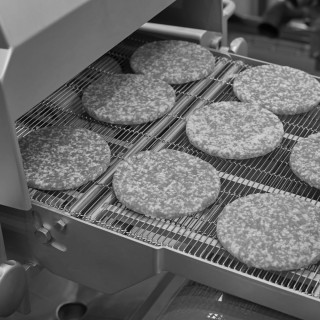
Challenges in naming plant-based alternatives
European Union
Mar 17, 2023
The popularity of plant-based alternatives to traditional meat, dairy and egg products has surged in recent years, with a growing number of consumers opting for these options for health, environmental and ethical reasons. Regulation (EU) No 1169/2011 governs the labelling of food products, including plant-based alternatives. The regulation requires that all food products be labelled with accurate information about their ingredients, nutritional value, and origin and must not be misleading to consumers. However, the plant-based alternatives does not fall easily withing the existing legal framework, creating challenges and divergence between Member States.
Name of the food
Pursuant to Regulation (EU) No 1169/2011, it is mandatory to display the name of the food on the label. Certain food names are legally reserved for food with certain composition and quality of foods, such as beef meat, pig meat, chicken, hops, milk, and cheese. Such names aim to protect consumers against substitution with similar ingredients but different composition and quality.
- Alternatives to Meat
The word meat itself as well as beef, pig and chicken meat are reserved for product with animal origin. However, the words referring to the shape/ composition of the meat products such as steak, sausages and burgers (the ‘meaty’ names) are not. The use of meaty names for vegetarian/ vegan product creates tension between the meat industry and the producers of plant-based alternatives. In 2020, European Parliament voted against the limitation of the words ‘steak’, ‘sausage’, ‘escalope’, ‘burger’ and ‘hamburger’ for animal-based products only. The main argument against such limitation is the lack of evidence that consumers are misled by existing designators for vegetarian products.
However, while EU refrains from regulating the use of ‘meaty’ names, the meat industry turns to nation law of EU Member States. In 2020, the French government issued a decree[1] banning plant-based manufacturer from using names such as sausage and steak for their product. On 27 July 2022, France’s highest administrative court has suspended the decree’s expected entering into force. The decision is only an interim suspension rather than a reversal. However, the court has expressed doubts about the legality of the decree and whether it is justified in terms of consumer protection. In France, the outcome is still unclear. Similarly, the use of ‘meaty names’ is subject to court cases in various Member States. For example, on 13th of February, the Supreme Administrative Court in Finland ruled that the name ‘burger patty’ may be used in the marketing of plant-based patties, however, the name ‘plant-based meat’ may give consumers misleading impression and limited its use.
- Alternatives to Diary
Pursuant to Regulation (EU) No 1308/2013, the terms ‘milk’, ‘cheese’, ‘butter’, ‘cream’ are reserved for diary product (‘diary’ names). The question whether ‘diary’ names could be used for diary alternatives has been discussed by the Court of Justice of European Union. The TofuTown case[2] involved a German company, which marketed vegetarian and vegan products using terms such as ‘soy milk’, ‘tofu butter’, and ‘vegan cheese’. The Court ruled that the reserved dairy names cannot be used even if combined with clarifying explanations as they cannot prevent confusion in the mind of the consumer with certainty. In Decision 2010/791/EU, European Commission granted exceptions for products, the nature of which is clear from the traditional use. Such products are peanut butter, coconut milk, cocoa butter, and others.
In Germany, the strict ban on using ‘diary’ names has expanded even to word which are not regulated on EU level. Düsseldorf Regional Court prohibited the use of the name ‘SKYR STYLE’ for a plant-based skyr alternative.[3] Düsseldorf Regional Court accepted the argument that ‘skyr’ is a common name for a cream cheese product made according to Icelandic tradition, and further ruled that the designations used in practice for dairy products and may not be used for plant products even if the plant origin is referred to by an explanation.
In the contrary, Celle Higher Regional Court has found the use of the designation ‘cheese alternative’ as an advertising claim to be permissible[4]. According to Celle Higher Regional Court, the word ‘cheese alternative’ does not describe the product as "cheese" but rather than related to the merely related ‘cheese’. While designations such as ‘tofu butter’ pose a risk of misleading consumers, the court considers that the average consumer who is informed and attentive will not be misled by the wording ‘cheese alternative’.
Conclusion
Differences in national rulings and the lack of harmonized legislation on EU level related to ‘meaty’ and ‘diary’ names creates uncertainty for companies which markets plant-based alternatives. Currently, the use of certain names for plant-based products requires detailed case-by-case analysis, evaluating the enforcement and potential risks. Further harmonization and clarity in this topic will be welcomed and would allow companies to focus on innovation and marketing in order to expand and further disrupt the European food market.
[1] Décret n° 2022-947 du 29 juin 2022 relatif à l'utilisation de certaines dénominations employées pour désigner des denrées comportant des protéines végétales
[2] Case C-422/16, Verband Sozialer Wettbewerb eV v. TofuTown.com GmbH, 2017
[3] LG Düsseldorf, Judgment of March 25, 2022, Az. 38 O 120/19
[4] OLG Celle, judgment of 28.03.2019, 13 U 35/19











